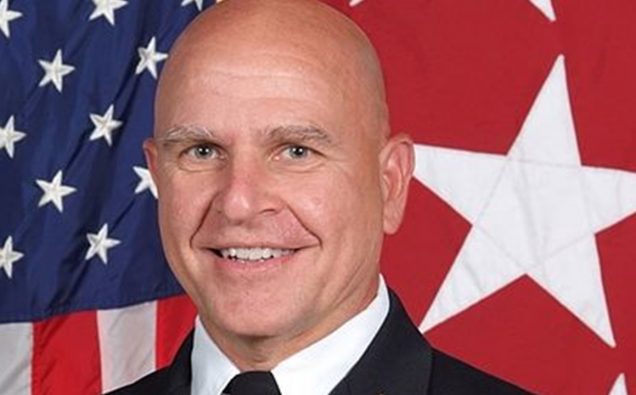
Image Credit: U.S. Army Public Affairs/Wikimedia Commons
President Donald Trump’s American foreign policy approach is out of the comfort zone and it has altered the international community’s view of the United States but not necessarily in a bad way, national security adviser Gen. H. R. McMaster says.
McMaster, a three-star army lieutenant general, who has advised Trump on some of the key changes in American foreign policy, told The New York Times that the White House policy has been one of “pragmatic realism,” and it does not mean isolationism.
Trump’s approach to foreign policy “has moved a lot of us out of our comfort zone, me included,” McMaster, 55, told The New York Times.
“The consensus view has been that engagement overseas is an unmitigated good, regardless of the circumstances,” the 55-year-old general said.
“But there are problems that are maybe both intractable and of marginal interest to the American people, that do not justify investments of blood and treasure.”
The Times published McMaster’s views as the Trump White House completed its first year, which saw Washington depart from the traditional policy of engagement in parts of the world and exit from multilateral pacts like the Paris Climate Agreement and Pacific Trade Agreement.
McMaster has advised Trump on some of the hot button issues including North Korean nuclear and missile threats, and a different stance on the Iran nuclear deal.
The Times also explained McMaster’s perspective by quoting his remarks from May this year when he said:
“Some people have described him (Trump) as disruptive. They’re right. And this is good — good because we can no longer afford to invest in policies that do not advance the interests and values of the United States and our allies.”
But despite Trump having had more than 130 meetings and participation in several events, some foreign leaders still remain puzzled on how to deal with him, according to analysts.
“Most foreign leaders are still trying to get a handle on him,” Richard Haass, a top State Department official in the George W. Bush administration, told the Times.
“Everywhere I go, I’m still getting asked: ‘Help us understand this president, help us navigate this situation.'”
Haass, who is now president of the Council on Foreign Relations in Washington, says the countries are now “hedging against America’s unreliability.”
In its look at the Trump White House’s foreign policies and Trump’s role on the world stage, the Times says “Trump has pulled out of trade and climate change agreements and denounced the 2015 nuclear deal with Iran. He has broken with decades of U.S. policy in the Middle East by recognizing Jerusalem as the capital of Israel. And he has taunted Kim Jong Un of North Korea as ‘short and fat,’ fanning fears of war on the peninsula.
“He has assiduously cultivated President Xi Jinping of China and avoided criticizing President Vladimir Putin of Russia — leaders of the two countries that his own national security strategy calls the greatest geopolitical threats to America.
“Above all, Trump has transformed the world’s view of the United States from a reliable anchor of the liberal, rules-based international order into something more inward-looking and unpredictable. That is a seminal change from the role the nation has played for 70 years, under presidents from both parties, and it has lasting implications for how other nations chart their futures.”












